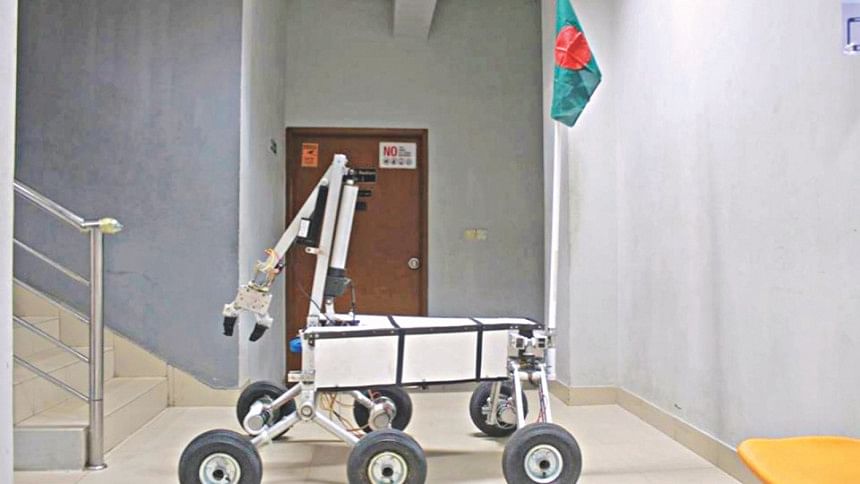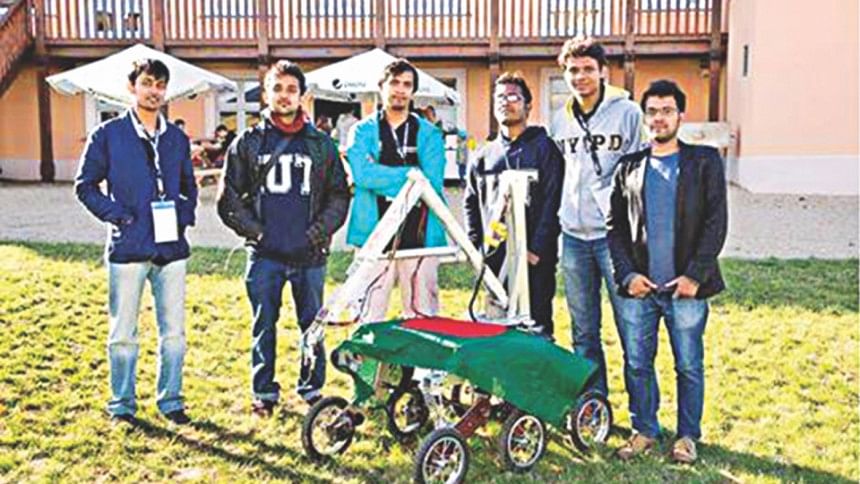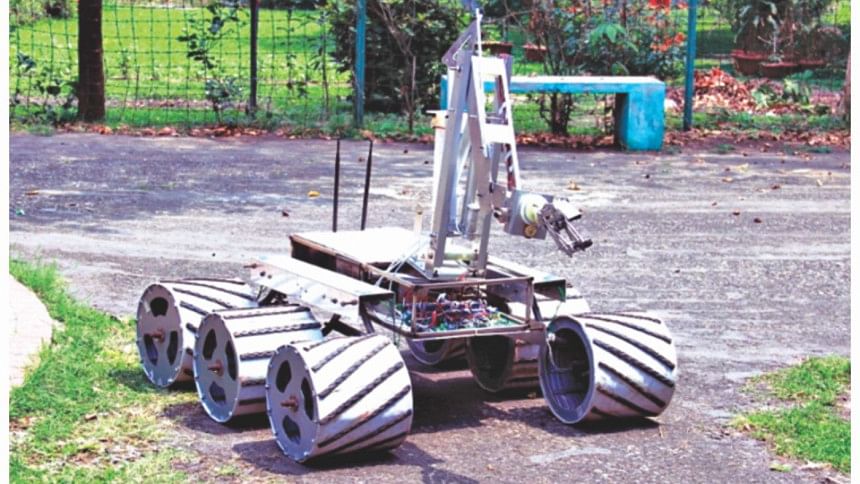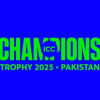Bangladesh students could make Mars rover

Imagine a rover wandering on the surface of Mars. It should not be too hard. We have plenty of films illustrating what it is like, the recent film The Martian pops up. But can you imagine that the rover is designed by Bangladeshi students?
It's not like the country is at the forefront of space exploration but there is a chance it could happen.
Three teams of Bangladeshi students are among 30 teams that have reached the field competition level of the world's biggest rover competition -- University Rover Challenge (URC) 2016.
The rovers that are proved the best in the URC finals organised by the Mars Society at the Mars Desert Research Station in southern Utah, USA, on June 2-4 would be able to assist the astronauts going for expeditions in Mars, which may one day become a human habitat.
The Bangladeshi teams are AIUB Robotic Crew of American International University; Interplanetar of Bangladesh University of Engineering and Technology (Buet) and IUT Mars Rover of Islamic University of Technology (IUT).
These teams would contest with 27 others -- 11 from the US, four from Canada, one from Egypt, three from India, seven from Poland and one from South Korea.
“We had to first submit a proposal, then design the rover. Later, we had to pass the critical design review stage to reach the field competition,” said Sakhawat Hussain Sakib, a member of IUT Mars Rover.

On the first day, the teams will race for the fastest time in a “short course” event that tests rovers' manoeuvrability and dexterity in a Mars-like terrain in the Utah desert, according to the Mars Society, an organ of the US National Aeronautics and Space Administration (Nasa).
The top 15 teams will advance to the Ares Finals and compete in a variety of tasks for the top overall spot. The remaining teams will then advance to the Phobos Finals for an equally exciting competition.
“The rover we have designed will be able to find 119 elements,” said Sakib of the IUT Mars Rover.
The six-wheeler can traverse rough and uneven terrain keeping its equipment on board out of harms way, while its robotic arms is capable of pouring liquids, flip switches, screw screws and lift 5kg of material that an astronaut on Mars may need.
“The rover can be remotely controlled over long distances,” Sakib told this correspondent. Such unique ability enables researchers to get in-depth information about the Red Planet without physically being there on Mars.
“Last year we became second best in Asia and 16th in the world in the European Rover Challenge 2015. We have become more confident. We hope to be one of the best five teams in the URC,” he said.
The rover, ARC 71, designed by the AIUB Robotic Crew, can lift materials up to 10kg and test samples and send results to the astronaut within two kilometres, said the team's leader Mahfuzur Rahman.
“An astronaut can control the rover from a distance of two kilometres. It is very fast and can travel on rough terrain,” he said.
Leader of the 17-member team said in their first effort they got the chance in URC 2016. “In that sense we are lucky, but we want to be one of the best,” Mahfuzur said.

Khaled Bin Moinuddin, team leader of the 11-member Interplanetar of Buet, said they have a strong rover that can traverse on rough terrain, do its own maintenance, assist astronauts and collect and test samples.
Mohiuddin Khan, assistant professor of the Department of Computer Science and Engineering at the IUT, said for the last few years robotics has become quite popular in Bangladesh, and teams from Buet and Shahjalal University have been doing very well.
“Now it is time for us to assess our position at the global level,” he said, adding that when students go to Europe or America, they can see how the students there are handling such projects. Thus, they become more confident, he added.
“Robot is the future -- starting from household work to disaster management. And, going to the Mars one day … it is a dream we can surely have,” Mohiuddin Khan said.
While students are upbeat about the URC, they said they have to face difficulties arranging equipment and sponsorship. “We hope the corporate sector and authorities would come up and inspire scientific ventures,” said Khaled Bin Moinuddin of Buet.

 For all latest news, follow The Daily Star's Google News channel.
For all latest news, follow The Daily Star's Google News channel. 








Comments